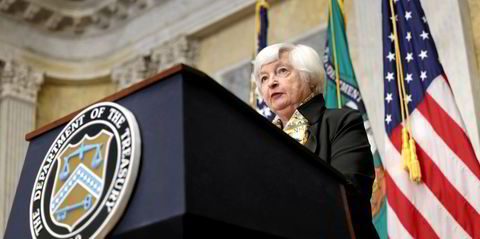Former Inmarsat maritime boss Frank Coles says more reality needs to be injected into discussions about smart shipping.
Speaking at his company’s conference, Coles, who is now chief executive of maritime systems supplier Transas, said there was a need to “distinguish between the blue sky and the blue ocean”.
Coles said he expected to see changes like those which hit companies such as Kodak and Blackberry so hard, but believed the transformations were likely to be biggest in the cargo shipping supply chain.
Huge




